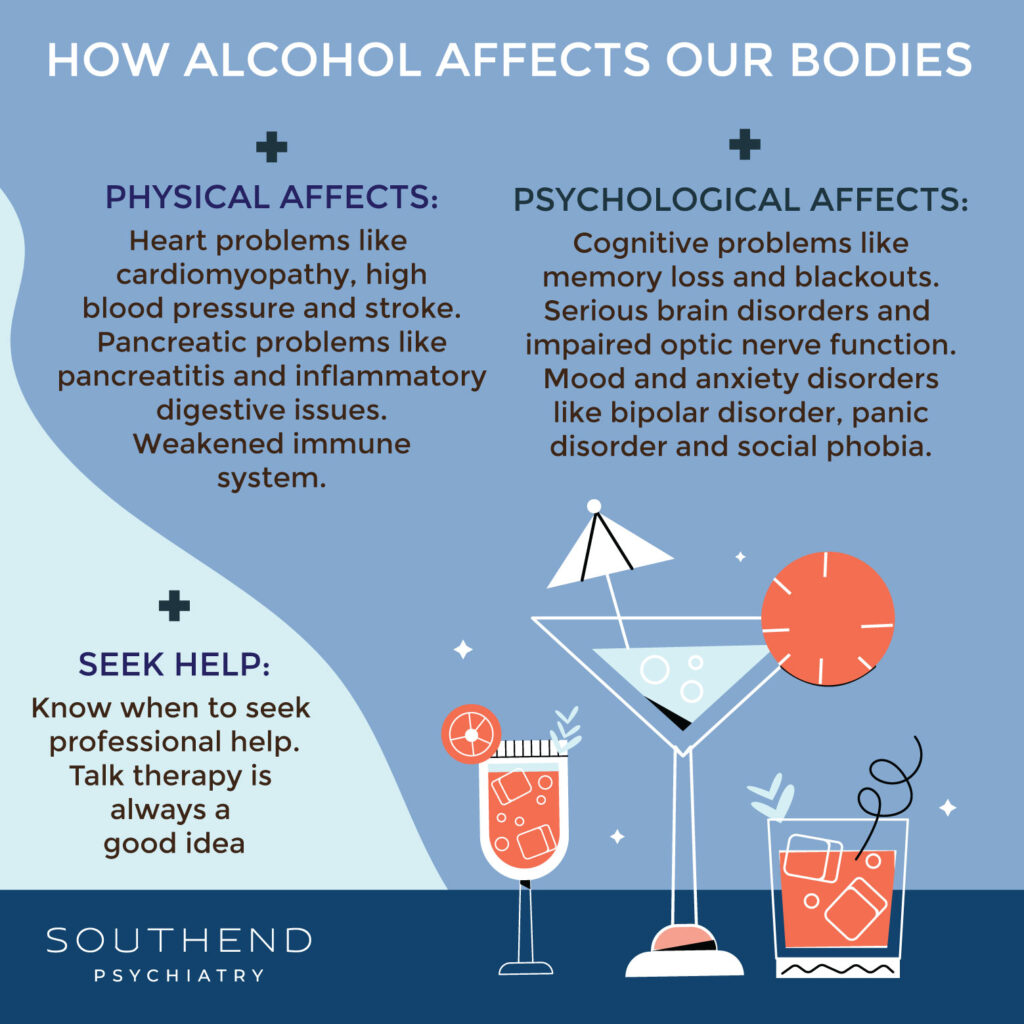April is Alcohol Awareness Month and we are specifically drawing attention to this campaign to point out the stigma that still surrounds alcoholism and substance abuse. We are joining the efforts of the National Council on Alcoholism and Drug Dependence’s (NCADD) to raise awareness to the causes of alcoholism, the signs and effects of the condition, how to talk to a loved one about a drinking problem, and how to find treatment options.
The Causes of Alcoholism
According to National Institute on Alcohol Abuse and Alcoholism, alcoholism is when one can no longer control their use of alcohol, compulsively abuse alcohol, despite its negative ramifications, and/or experience emotional distress when they are not drinking.
Alcohol.org states that alcoholism is believed to have a strong heritable component, with between 40–60% of the variance of risk being attributable to genetic factors. However, there is no cut-and-dry formula to explain alcoholism. It is a multifaceted and complex disease, so while someone may inherit a predisposition to the disorder, genes do not fully determine a person’s outcome.
The way genes are affected by environmental factors plays an important role in alcoholism. For example, being around parental figures who abuse alcohol, being exposed to peers who are heavy alcohol users, and using alcohol for the first time at an early age, can all influence the development of alcoholism.
The Signs and Effects
The National Institute on Alcohol Abuse and Alcoholism tells us that physical effects associated with alcohol addiction can include:
- Heart problems like cardiomyopathy (enlarged, inefficient heart muscle), arrhythmias (irregular heartbeat), high blood pressure, and stroke.
- Liver disease, including steatosis (fatty liver), alcoholic hepatitis, fibrosis, cirrhosis, and hepatocellular carcinoma.
- Pancreatic problems like pancreatitis, an acutely painful inflammatory condition that can progress to a chronic disease. Pancreatitis can affect a range of pancreatic functions, including the normal release of digestive enzymes.
- Certain types of cancer, including head and neck cancer, esophageal cancer, liver cancer, breast cancer, and colorectal cancer.
- A weakened immune system, which can increase your risk of infection and contraction of diseases like pneumonia and tuberculosis.
Potential psychological and cognitive effects associated with alcoholism include:
- Cognitive problems, such as memory loss or problems thinking clearly.
- Blackouts (periods of time in which you cannot recall events).
- Serious brain damage and disorders like Wernicke–Korsakoff Syndrome, which leads to confusion, impaired optic nerve function, profound movement deficits, and problems with memory recall and consolidation.
- Mood disorders, like major depressive disorder or bipolar disorder.
- Anxiety disorders, especially panic disorder and social phobia.

How to Talk to a Loved One
It takes courage to talk to a family member or friend about a drinking problem. These tips from health.gov can help.
- Be prepared. Before you talk, take some time to accept your own feelings. It’s normal to feel nervous or upset, but try to be calm when you talk with your loved one. Practice what you’ll say and plan to keep it brief. Try focusing on just 1 change that could help your loved one.
- Keep it positive. Use positive language and try to focus on the benefits of making change.
- Make a plan together to seek help. Work together to make a list of goals. Choose 1 goal as a first step — like taking 2 nights off from drinking each week. Make sure it’s something you can measure easily. Encourage your loved one to make an appointment with a professional licensed counselor.
How to Find Treatment Options
If you feel you or a loved one may be struggling with alcoholism, you’re not alone. We at Southend Psych understand how overwhelming it can be to consider seeking help for addiction and we’re here to take that burden off your shoulders.
Southend Psychiatry is here as you navigate this journey. We can come alongside you to offer support and help. Contact Southend Psych today to inquire about appointment availability and get on your way to a better you.
Southend Psychiatry
Schedule your appointment today with one of our SouthEnd Psychiatry clinicians. Book your appointment online or call 1-800-632-7969 to get started today.



